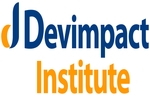|
|
Training on Gender Analysis
USD 950 |
Venue: Nairobi, Kenya
Gender analysis entails a variety of techniques for analyzing how men and women interact with one another, their access to resources, their activities, and the limitations that apply to them about one. Understanding the various involvement, behavior, and activities that men and women engage in within economic, social, and legal frameworks requires knowledge of gender, as well as how it relates to other factors such as race, ethnicity, culture, class, age, disability, and/or other statuses.
This training equips participants with the skills and knowledge necessary for conducting a gender analysis assessment. This course is aimed at project staff in charge of formulating and implementing projects to help ensure that gender issues are systematically integrated at each stage of the project cycle.
Target Participants
This course is ideal for staff in development organizations, government institutions, and the private sector who have an interest in gender analysis.
Course Duration
Online 7 Days
Classroom-based 5 Days
What you will learn
By the end of this course the participants will be able to:
- Understand key gender concepts and gender analysis tools.
- Understand the different gender analysis frameworks and their application.
- Understand the role of gender analysis in mainstreaming gender.
- Choose an appropriate gender analysis framework.
- Conduct a gender analysis assessment.
- Integrate gender into strategic and operational planning.
Course Outline
Key Gender Concepts and Definitions
- What is gender?
- Sex and gender
- Gender norms, perceptions, and expectations
- Gender roles
- Gender equity, gender equality, and gender gaps
- Gender-based violence
Overview of Gender Mainstreaming in Projects
- What is gender mainstreaming?
- The need for gender mainstreaming in projects
- Guiding principles in gender mainstreaming
- The process of GM in a project lifecycle
Introduction to Gender Analysis
- Key concepts in gender analysis
- Domains in gender analysis
- Gender analysis frameworks and their application
- Role of gender analysis in mainstreaming gender
Choosing a Gender Analysis Framework
- Comparing gender frameworks
- Understanding the different purposes of the gender analysis frameworks
- Understanding the limitations of each gender analysis framework
- Choosing an appropriate framework
Harvard Analytical Framework
- Background of the Framework
- Aims of the Framework
- Harvard Tool 1: The Activity Profile
- Harvard Tool 2: The Access and Control Profile – resources and benefit
- Harvard Tool 3: Influencing factors.
- Harvard Tool 4: Checklist for Project-Cycle Analysis
People-Oriented Planning Framework
- Background of the Framework
- Aims of the Framework
- Components of the Framework
- POP Tool 1: Refugee Population Profile and Context Analysis
- POP Tool 2: The Activities Analysis
- POP Tool 3: Use and Control of Resources Analysis
Moser Framework
- Background of the Framework
- Aims of the Framework
- Components of the Framework
- Moser Tool 1: Gender roles identification / triple role
- Moser Tool 2: Gender needs assessment
- Moser Tool 3: Disaggregating control of resources and decision-making within the household
- Moser Tool 4: Planning for balancing the triple role.
- Moser Tool 5: Distinguishing between different aims in interventions: the
- WID/GAD Policy Matrix
- Moser Tool 6: Involving women, and gender-aware organizations and planners, in planning.
Gender Analysis Matrix (GAM)
- Background of the Framework
- Aims of the Framework
- Components of the Framework
- GAM Tool 1: Analysis at four ‘levels’ of society
- GAM Tool 2: Analysis of four kinds of impact
Capacities and Vulnerabilities Analysis Framework
- Background of the Framework
- Aims of the Framework
- Components of the Framework
- CVA Tool 1: Categories of capacities and vulnerabilities
- CVA Tool 2: Additional dimensions of ‘complex reality
Women’s Empowerment (Longwe) Framework
- Background of the Framework
- Aims of the Framework
- Components of the Framework
- Women’s Empowerment Tool 1: Levels of equality
- Women’s Empowerment Tool 2: Level of recognition of women’s issues
Social Relations Approach
- Background of the Framework
- Aims of the Framework
- Components of the Framework
- Social Relations Approach Concept 1: Development as increasing human well-being.
- Social Relations Approach Concept 2: Social relations
- Social Relations Approach Concept 3: Institutional analysis
- Social Relations Approach Concept 4: Institutional gender policies
- Social Relations Approach Concept 5: Immediate, underlying, and structural causes
Gender Analysis Methodology
- Data collection methods and tools
- Sampling methodology
- Data analysis
- Gender analysis report
- Gender analysis validation and reflection workshop
Training Approach
This course is delivered by our seasoned trainers who have vast experience as expert professionals in their respective fields of practice. The course is taught through a mix of practical activities, theory, group work, and case studies.
Training manuals and additional reference materials are provided to the participants.
Certification
Upon successful completion of this course, participants will be issued a certificate.
Tailor-Made Course
We can also do this as a tailor-made course to meet organization-wide training needs. A training needs assessment will be done on the training participants to collect data on the existing skills, knowledge gaps, training expectations, and tailor-made needs.
| Nairobi, Kenya | Dec 09 - 13 Dec, 2024 |
Registration: 08:30:am - 04:00:am
| USD 950.00 + 47.50 (VAT) | (Classroom-based) |
| USD 600.00 + 30.00 (VAT) | (Online) |
Devimpact Institute +254714349537
Related Courses
 Training on Public Financial Management and Administration
Training on Public Financial Management and Administration
5 days, 06 - 10 Jan, 2025
Devimpact Institute



